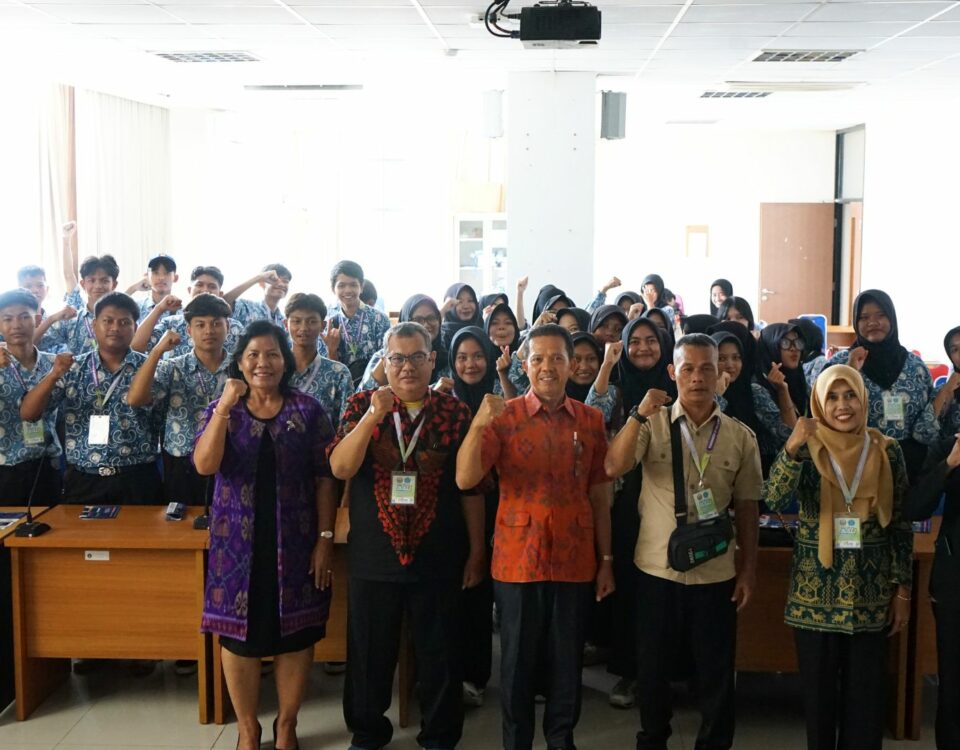Singaraja- A Mental revolution is an effort to change the way we think, work, and live, aiming to build character traits such as integrity, work ethic, and mutual cooperation. The term “revolution” signifies that something must be changed for the better. Similar to this, the mental revolution initiative launched by the Indonesian government seeks to preserve and build the nation’s character, ultimately producing a national culture with greater benefits. This program focuses on character building and fostering positive attitudes within the community, including among students.
Mental revolution was one of the topics discussed during the Introduction to Campus Life for New Students (PKKMB) at Undiksha. The session was presented by the Governor of Bali Official Representative by the Head of Region Development Planning Agency (Bapeda) Bali Province represented, I Wayan Wiasthana Ika Putra, on Friday, August 16, 2024.
He discussed the reality of NKRI diversity as a nation, composed of various races, ethnicities, tribes, groups, religions, traditions, cultures, or geographic conditions, all of which are elements of nation-building. Bali, as a region rich in culture and traditions widely recognized internationally, has practiced mental revolution from the outset, prioritizing tolerance in its diversity.
One of the pressing developmental issues in Bali is waste management, which remains unresolved. The culture of disposing of waste properly is still not ingrained in the Bali community. This is where a mental revolution is needed to instill a mindset and behavior that demonstrates love and care for the environment.
The government has launched five programs to promote the mental revolution: Indonesia Serves, Indonesia Clean, Indonesia Orderly, Independent Indonesia, and United Indonesia.
Through the Mental Revolution, students are expected to understand the importance of integrity, strong word ethics, and social responsibility. This approach integrates the core values of education, personal development, and community empowerment. In this way, new students can become constructive change agents and contribute to the nation’s betterment.





